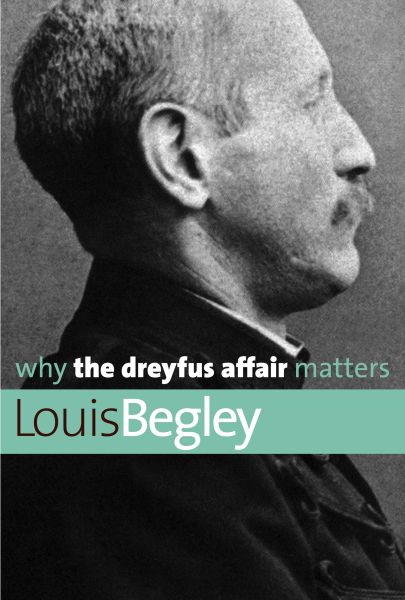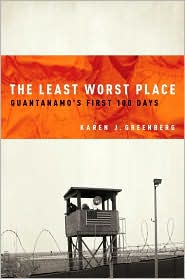Book Review: Cipriani’s Children’s Rights and the Minimum Age of Criminal Responsibility
This installment in our ongoing series of book reviews looks at Children’s Rights and the Minimum Age of Criminal Responsibility by Don Cipriani. Michael Gigante’s review takes a critical eye towards the arguments Cipriani advances in favor of requiring all nations to establish a minimum age of criminal responsibility.
By Michael V. Gigante
 Ideas about the proper role of criminal responsibility in juvenile justice tend to fall along a welfare-justice continuum. The welfare approach, prominent at the birth of the modern notion of a juvenile justice system, essentially dismissed the notions of competence and criminal responsibility for children. State authorities intervened to make benevolent decisions on behalf of children, who were portrayed as objects without liberty rights. On the other end of the continuum, the justice approach—towards which clear shifts have occurred in recent decades—places criminal responsibility and children’s alleged competence at the center of juvenile justice. Accountability, due process, and punishment are the foundations of this approach. In Children’s Rights and the Minimum Age of Criminal Responsibility: A Global Perspective, Don Cipriani points out the flaws of both these approaches and describes the merits of a children’s rights approach as a way to mediate between the tensions of the welfare and justice approaches.
Ideas about the proper role of criminal responsibility in juvenile justice tend to fall along a welfare-justice continuum. The welfare approach, prominent at the birth of the modern notion of a juvenile justice system, essentially dismissed the notions of competence and criminal responsibility for children. State authorities intervened to make benevolent decisions on behalf of children, who were portrayed as objects without liberty rights. On the other end of the continuum, the justice approach—towards which clear shifts have occurred in recent decades—places criminal responsibility and children’s alleged competence at the center of juvenile justice. Accountability, due process, and punishment are the foundations of this approach. In Children’s Rights and the Minimum Age of Criminal Responsibility: A Global Perspective, Don Cipriani points out the flaws of both these approaches and describes the merits of a children’s rights approach as a way to mediate between the tensions of the welfare and justice approaches.

 In Human Rights for the 21st Century, Helen Stacy addresses the major critiques of the international human rights framework, offering suggestions on how to fill gaps in the current system in order to strengthen the framework. Stacy organizes the major critiques of the international human rights system into three categories: sovereignty, civil society, and multiculturalism. Responding to each of these critiques, she argues that the law and the courts must continue to play a critical role in the human rights system, but their role must be adjusted to adapt to the challenges posed by the current world order. Stacy’s book is a worthy read, providing a comprehensive analysis of the current challenges of the current human rights framework and offering interesting and practical proposals aimed at improving the present system.
In Human Rights for the 21st Century, Helen Stacy addresses the major critiques of the international human rights framework, offering suggestions on how to fill gaps in the current system in order to strengthen the framework. Stacy organizes the major critiques of the international human rights system into three categories: sovereignty, civil society, and multiculturalism. Responding to each of these critiques, she argues that the law and the courts must continue to play a critical role in the human rights system, but their role must be adjusted to adapt to the challenges posed by the current world order. Stacy’s book is a worthy read, providing a comprehensive analysis of the current challenges of the current human rights framework and offering interesting and practical proposals aimed at improving the present system. For a concept that is so central to international relations and public international law, the meaning of “sovereignty” is surprisingly difficult to articulate. At its essence, Westphalian sovereignty is about the ability of a state to engage in political self-determination, to be considered a legal equal of other states, and to ensure non-interference of outside states in its own internal affairs.
For a concept that is so central to international relations and public international law, the meaning of “sovereignty” is surprisingly difficult to articulate. At its essence, Westphalian sovereignty is about the ability of a state to engage in political self-determination, to be considered a legal equal of other states, and to ensure non-interference of outside states in its own internal affairs. Two years after the 1927 execution of Italian-American anarchists Nicolai Sacco and Bartolomeo Vanzetti, H.L.Mencken wrote that their case “refuses to yield. . . . The victims continue to walk, haunting the conscience of America, of the civilized world.” Eight decades have passed since Mencken’s writing, yet Sacco and Vanzetti continue to stalk the public imagination, attracting renewed interest from scholars, journalists, commentators, and novelists. Temkin’s engaging and insightful work attempts to establish the historical place of Sacco and Vanzetti by focusing on the nationwide and transatlantic dimensions of their case. By focusing on the international reactions to the convictions and executions, and on the effects of foreign criticism, Temkin finds his own unique niche among the extensive scholarship on the case.
Two years after the 1927 execution of Italian-American anarchists Nicolai Sacco and Bartolomeo Vanzetti, H.L.Mencken wrote that their case “refuses to yield. . . . The victims continue to walk, haunting the conscience of America, of the civilized world.” Eight decades have passed since Mencken’s writing, yet Sacco and Vanzetti continue to stalk the public imagination, attracting renewed interest from scholars, journalists, commentators, and novelists. Temkin’s engaging and insightful work attempts to establish the historical place of Sacco and Vanzetti by focusing on the nationwide and transatlantic dimensions of their case. By focusing on the international reactions to the convictions and executions, and on the effects of foreign criticism, Temkin finds his own unique niche among the extensive scholarship on the case. In November 2003, a jury delivered the death sentence to John Allen Muhammad, one of the two men behind the Washington, D.C.-area sniper attacks in 2002. The execution took place in 2009, almost six years to the day after his sentencing. If Muhammad had carried out the same crimes in Europe, he would not have been subject to capital punishment. In still other parts of the world, like the Caribbean, he may have received the death penalty, but ultimately his sentence would have been commuted since he remained on death row longer than five years. What accounts for regional differences in issuing (or not issuing) capital sanctions for heinous crimes such as the sniper attacks? Further, if Muhammad had received a sentence of life in prison without the possibility of parole (LWOP) in the United States or any other country, would that really have been preferable to a death sentence? Can shorter sentences effectively punish the perpetrator and protect society from future crime while simultaneously respecting criminals’ human rights?
In November 2003, a jury delivered the death sentence to John Allen Muhammad, one of the two men behind the Washington, D.C.-area sniper attacks in 2002. The execution took place in 2009, almost six years to the day after his sentencing. If Muhammad had carried out the same crimes in Europe, he would not have been subject to capital punishment. In still other parts of the world, like the Caribbean, he may have received the death penalty, but ultimately his sentence would have been commuted since he remained on death row longer than five years. What accounts for regional differences in issuing (or not issuing) capital sanctions for heinous crimes such as the sniper attacks? Further, if Muhammad had received a sentence of life in prison without the possibility of parole (LWOP) in the United States or any other country, would that really have been preferable to a death sentence? Can shorter sentences effectively punish the perpetrator and protect society from future crime while simultaneously respecting criminals’ human rights?
 By Kelly Geoghegan
By Kelly Geoghegan By John Wunderlin
By John Wunderlin By Graham F. Dumas
By Graham F. Dumas